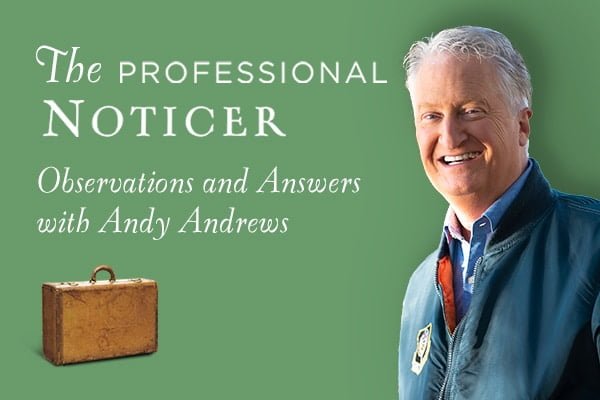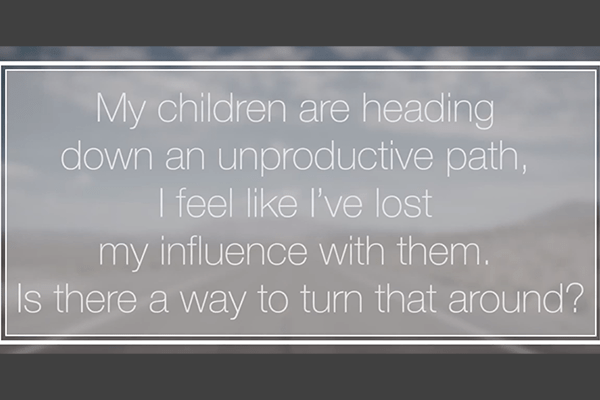He was a CEO—a leader of thousands. I had seen him on television and read about him in magazines and newspapers. I had only met the man an hour before, but now, I watched as he laid his head on his desk and cried.
His stockholders had turned their backs, the corporation’s Board of Directors were abandoning him, his wife was moving out … The man was in a tragic mess of his own making.
“I just don’t understand how this could have happened,” he sobbed for what must have been the tenth time.
Contrary to his assessment of the situation, I knew exactly how it had happened. And I knew there weren’t enough “I’m sorrys” in the world to make it right.
As I waited for him to regain control of his emotions, I thought about how many times I had watched this scene replay itself in the lives of so many others. Perhaps not in so dramatic a fashion, but the results were always the same. My mind wandered back to a question I had often pondered: How many people have squandered careers, forfeited a lifetime of leadership, suffered estrangement from their children, or lost a marriage—all because they didn’t understand the difference in a mistake and a choice?
In the case of the CEO, it was a moral failure that had become public, quickly leading to the recognition of related financial discrepancies. Soon after the news broke, he held a press conference to announce that he was sorry. In fact, that is exactly what he said. “I am sorry,” he stated, “for the mistakes I have made.” Despite his apology, there was no reprieve, no mercy from his family, the courts, or the public, and things went from bad to worse.
If only he had known consciously what everyone else sensed subconsciously … He had not made a mistake. He had made a choice. There is a huge difference!
Say you are walking in the woods, lose your way, and it gets dark. Unable to see, you trip and break your arm. That is a mistake.
But if your mother has always told you to stay out of the woods and you are wandering around in broad daylight, ignoring the “POSTED” signs, assuming no one will ever find out you were in the woods in the first place … If you are then arrested for trespassing, it was no mistake. That, my friend, was a choice!
Interestingly, as parents, employees, spouses, and friends, we react predictably to a person who is attempting to clean up a mess of their own making. When someone truly makes a mistake and says “I’m sorry”, our favor is generally granted. Its because we sense honesty and can usually apply a “there but for the grace of God, go I” sensibility to the situation. Oh well, we think, she picked blue instead of yellow … he went right instead of left … they planted turnips instead of radishes … It was a mistake. We all make them. Hopefully, we learn from them, but bosses, mamas, husbands, coaches, and kids all make mistakes. And when we do, an “I’m sorry” usually covers it.
On the other hand, when a person makes a choice—say they steal something or have an affair—and then says, “I am sorry”, it never has the desired effect. Even if they say it again and again. Have you ever seen a public figure or someone in a leadership position become frustrated and ask, “How many times do I have to say that I’m sorry?” The answer, unfortunately for them, is that a thousand times would not be enough.
When we hear a person who has made a choice say that they are sorry, we subconsciously reply: You aren’t sorry. You are just sorry you got caught.
When a person experiences a failure of choice, only asking for and gaining forgiveness will rebalance the scales.
Men sometimes wonder why their wives often seem to bring the last argument into a current one. My gosh, we think, that happened a year ago! Why can’t she just let it go? However, if we think back, we will most likely remember that the situation or argument “ended” with an apology … an “I’m sorry”. And if the argument was the result of a choice, the bad feelings never really ended with that apology. The hurt or anger was merely repressed and hidden, waiting to be prodded to life again at a later time.
It is also important to note here that hurtful words are spoken by choice. More relationships are torn apart by words than by any other means. But even during the worst times, true remorse and a sincere appeal for forgiveness can save the day.
Will you forgive me?
The request seems to some people a bit beneath them, as if they might lose leadership or respect in the eyes of someone else. Incredibly, just the opposite is true. An employer who asks an employee’s forgiveness is granted more respect and loyalty than they had in the first place.
Will you forgive me?
A father who asks for a child’s forgiveness not only models behavior the young person will need in future relationships, that father is cementing his relationship (not to mention a good self image) with that child.
To err is human. Sure, we all make mistakes and it seems that at one time or another, we all make bad choices. But knowing the distinction between the two (and how to respond to both) can make all the difference in the world!
Andy Andrews








